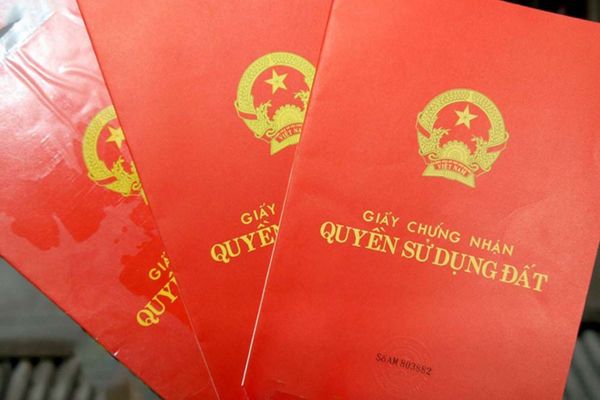Procedures for Initial Land Registration for Cases of Land Allocation by the State for District-Level Management - Latest 2023
First-Time Land Registration Procedures for Cases Where the State Allocates Land to District-Level Management in 2023?
Based on Subsection 2, Section B, Annex issued together with Decision 1085/QD-BTNMT 2023 guiding the first-time land registration for cases where the State allocates land for district-level management as follows:
- The person to whom the State allocates land management must submit the dossier at the Office of Land Use Rights Registration under the Division of Natural Resources and Environment or the dossier-receiving agency as prescribed by the People’s Committee of the province, centrally-run city.
In case the dossier is incomplete or invalid, within a maximum of 3 days, the dossier-receiving and processing agency must notify and guide the applicant to supplement and complete the dossier as prescribed.
- The dossier-receiving agency must record all information in the Dossier Reception and Result Delivery Book, and issue the Dossier Reception and Result Delivery Receipt to the applicant.
- The Office of Land Use Rights Registration performs the following tasks:
+ Extract cadastral maps or measure cadastral parcels in areas without cadastral maps or where cadastral maps exist but the current land use boundaries have changed, or check the cadastral parcel extraction maps provided by the land users (if any);
+ Update parcel information, register into the cadastral records, and update the land database (if any).
First-time online district-level land registration procedure:
Step 1: Citizens submit the dossier at the Public Service Portal
Step 2: The dossier receiving and resolving agency is responsible for carrying out administrative procedures regarding land according to the legal provisions on land; in cases where inspection, verification, or other reasons are needed and the dossier processing result cannot be delivered within the prescribed time for resolving land administrative procedures, the dossier-receiving and processing agency must send a notification by writing, via the Public Service Portal, or via SMS to the requesting party, stating the reason clearly.
Step 3: Land users are responsible for fulfilling financial obligations as prescribed by law either directly or online through the payment function of the Public Service Portal.
Step 4: Result delivery
The delivery of administrative procedure resolution results is carried out at the dossier-receiving agency or via public postal services, or at a location requested for cases receiving dossiers and delivering results of land registration and other property attached to land.

First-time land registration procedures for cases where the State allocates land to district-level management in 2023? (Image from the Internet)
What does the dossier for first-time land registration for district-level management cases allocated by the State include?
Based on Subsection 2, Section B, Annex issued together with Decision 1085/QD-BTNMT 2023 stipulates the dossier for first-time land registration for cases where the State allocates land for district-level management includes:
- Registration application, issuance of the Certificate of Land Use Rights, ownership of residential houses, and other properties attached to the land according to Form 04/DK;
- Document from the competent state agency on land allocation for management (if any);
- Diagram or cadastral parcel extraction map or parcel zone allocated for management (if any).
How long does it take to resolve first-time land registration procedures for cases where the State allocates land to district-level management?
Based on Subsection 2, Section B, Annex issued together with Decision 1085/QD-BTNMT 2023, the time to resolve first-time land registration procedures for cases where the State allocates land for district-level management is regulated by the provincial People's Committee but shall not exceed 15 days from the date of receiving a valid dossier.
Note: This time does not include holidays and days off as prescribed by law; the time not counting reception of dossiers at the commune; the time land users fulfill their financial obligations; the time for consideration and processing in cases of land use law violations, and the time for soliciting expertise.
For mountainous communes, islands, remote areas, areas with difficult socio-economic conditions, and areas with specially difficult socio-economic conditions, the implementation time is increased by 10 days.
LawNet